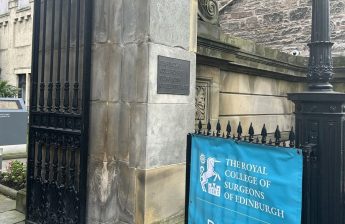In the last few days, some media outlets reported that one in every five coffee shops in Malaysia had closed down in the six months.
The reason given was the implementation of the smoking ban by the Government, with the restaurant owners’ association representative alleging that “ …they were unable to take the losses from customers who stopped patronising their premises due to the ban”.
In the news and on social media, a particular café in Subang Jaya called Cosans Coffee was highlighted. The café was allegedly bringing down the shutters on its operation due to the losses that it was taking from losing customers to the smoking ban. The owner, a Mr John Ee Hong, alleges that he used to make RM50,000 a month but is now only able to make RM15,000 a month.
Whilst one sympathises with the coffee shop owner and his loss of business that has required him to shut down, it is with all due respect that I need to make some strong and clear clarifications in order to ensure that a true picture of issues can be clearly determined by the Malaysian public.
In order to do this, colleagues of mine made a trip to Cosans Coffee and in fact, spent a significant amount of time patronising the business. Here’s the true picture.
Cosans Coffee has two separate lovely indoor and outdoor sections. The indoor section has tables that can seat about 50 something patrons and is air-conditioned, while the outdoor section has tables that can seat about 15 people and is, naturally, not air-conditioned. From the layout, you would have surmised that less than a third of the seating areas of the café were actually outdoors.
Here is where it gets interesting. The current extension of smoking regulations to all eateries including air-conditioned and non air-conditioned ones has only come into effect since the 1st of January 2019, while under the Control of Tobacco Product Regulations 2004, smoking in air-conditioned eateries was already prohibited.
To allegedly have a loss of monthly income from RM 50,000 to RM15,000 for Cosans Coffee, which started operating in 2013 according to the story, the following may have been going on: that they were flouting existing regulations which existed BEFORE the current smoking ban in terms of allowing smoking to go on within their air-conditioned areas.
If not, in no case would sales revenue from 15 seats in the outdoor sections of the café been enough to generate RM50,000 a month otherwise. The other premise postulated, of course, are that these alleged sales figures are not as accurate as they are being made out to be and that this alleged drop in income is not as bad as being portrayed.
Consider, also the effect of other factors that may be playing a larger role in causing the alleged drop in business of coffee shops such as Cosans Coffee.
One immediate one that comes to mind is the rise of the ‘bubble-tea’ phenomenon. Subang Jaya itself is lined with many of these outlets; and these outlets are lined in turn with long, snaking rows of customers queueing to get their ‘bubble-tea’ fix.
Maybe…that’s where the customers are moving to? That’s nothing to do with the smoking ban, is it? In fact, the ‘bubble-tea’ outlets which are compliant to the smoke-free regulations, incidentally, make a contrary case to what the coffee-shop owners are alleging because they are eateries that are flourishing with the smoking ban!
Similarly, many ‘mamak’ restaurants have shifted to being not only completely smoke-free, but also to even stop selling cigarettes on their premises. Contrary to what is being alleged by these associations, these big chains, including renowned Nasi Kandar restaurants, have not seen a dip in business at all, and continue to be packed at all hours of the day and night.
There is an additional interesting insight to be shared from the Cosans Coffee experience, which from in-depth examination seems to form the base of complaints from coffee-shop owners and subsequently their associations as well.
From my colleague Prof Mohamad Haniki Nik Mohamed of IIUM’s research on the tobacco industry’s incentives to retailers which include coffee-shop owners, 70 per cent of them are provided clear financial incentives to sell cigarettes.
This forms a large part of their businesses’ profits. This is why they are unhappy with the smoking ban extension to all eateries.
They lose their profits derived from cigarette sales.
Dr Murallitharan M
My question to coffee-shop owner and other restaurateurs complaining is this: if you are a food and beverage outlet, why are you depending on cigarette sales for your revenue? If so, why don’t you call yourself a ‘cigarette bar’ or ‘cigarette lounge’?
The coffee-shop industry and their other association counterparts have been making quite a huff and puff (pun intended) about the loss of revenue due to the smoking ban. From a quick analysis of a named coffee shop as highlighted by them itself, the veracity of their claims is questionable in terms of loss of revenue.
As such, I now even question their claim of how “one in every five coffee shops in Malaysia have shut down in the past 6 months, ” or even “30 per cent decline in business” alleged by the Muslim Restaurant Owners’ Association. Are these claims even verified? Or are Malaysians being sold into the “fake news” being purported by these associations to gain sympathy?
Stop blowing smoke into our eyes about smoke-free eateries. Malaysians are not that easily blinded.
Dr Murallitharan M. is a Public Health Physician, Director of the National Cancer Society of Malaysia (NCSM) and the Treasurer General of the Malaysian Council for Tobacco Control (MCTC).
- This is the personal opinion of the writer or publication and does not necessarily represent the views of CodeBlue.




